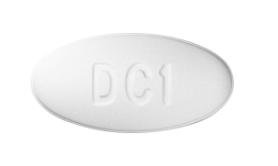Qinlock and Alcohol/Food Interactions
There are 2 alcohol/food/lifestyle interactions with Qinlock (ripretinib).
Ripretinib Food
Moderate Food Interaction
Grapefruit juice may increase the blood levels of certain medications such as ripretinib. You may want to limit your consumption of grapefruit and grapefruit juice during treatment with ripretinib. However, if you have been regularly consuming grapefruit or grapefruit juice with the medication, then it is advisable for you to talk with your doctor before changing the amounts of these products in your diet, as this may alter the effects of your medication. Contact your doctor if your condition changes or you experience increased side effects. Orange juice is not expected to interact.
Ripretinib High Blood Pressure (Hypertension)
Moderate Potential Hazard, Moderate plausibility
ripretinib - hypertension
Ripretinib may cause hypertension. It is recommended to control blood pressure prior to initiating therapy and monitor blood pressure as clinically indicated during treatment. Based on severity, withhold treatment with ripretinib and resume at the same or reduced dose or permanently discontinue. Do not initiate ripretinib in patients with uncontrolled hypertension.
References
- (2023) "Product Information. Qinlock (ripretinib)." Deciphera Pharmaceuticals
Qinlock drug interactions
There are 322 drug interactions with Qinlock (ripretinib).
Qinlock disease interactions
There are 3 disease interactions with Qinlock (ripretinib) which include:
More about Qinlock (ripretinib)
- Qinlock consumer information
- Check interactions
- Compare alternatives
- Pricing & coupons
- Drug images
- Side effects
- Dosage information
- During pregnancy
- FDA approval history
- Drug class: multikinase inhibitors
- Breastfeeding
- En español
Related treatment guides
Drug Interaction Classification
| Highly clinically significant. Avoid combinations; the risk of the interaction outweighs the benefit. | |
| Moderately clinically significant. Usually avoid combinations; use it only under special circumstances. | |
| Minimally clinically significant. Minimize risk; assess risk and consider an alternative drug, take steps to circumvent the interaction risk and/or institute a monitoring plan. | |
| No interaction information available. |
Further information
Always consult your healthcare provider to ensure the information displayed on this page applies to your personal circumstances.


